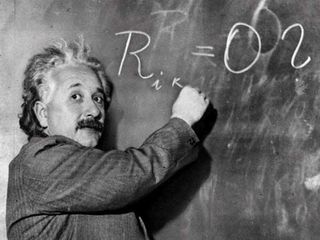We, at Tidemark (and I, personally), are in the process of trying to simplify our daily workflow. The purpose of this exercise is to free ourselves from extraneous, unproductive tasks, and replace them with more critical, strategically driven tasks, as well as free up time to think, imagine, and innovate. This exercise has already taken an enormous amount of thought, and is likely to take even more. But I'm optimistic that the end product will be worth it.
I can already begin to imagine a more productive workday, where each task is laid out the night before; where I keep track of the time that I spend on each task (using the Toggl App); where I delegate tasks that should be done by someone else; and where I am freed up to research and develop new ideas. 
Our quest to achieve efficiency while maintaining the excellence in productivity that our clients have come to expect, has caused me to research and listen to experts, on ways that this can be done. While I have written extensively on a number of research supported ways to improve engagement on a personal level, the following is a valuable exercise that we’ve found helpful for our staff.
- We re-worked and re-affirmed our key strategies for the next year.
- We named three critical tasks that support these strategies.
- We had everyone in the organization memorize these tasks so that they can improve anything that supports these objectives, and exclude the things that do not support the objectives.
Another exercise that I am personally integrating into the mix was found in the article “The Magic of Doing One Thing at a Time.”
The author recommends being fully engaged at each moment rather than attempting to juggle several duties throughout the day. I am fully committed to giving this a try. The following are suggestions that I am most likely going to experiment with.
“It's also up to individuals to set their own boundaries. Consider these three behaviors for yourself:
1. Do the most important thing first in the morning, preferably without interruption, for 60 to 90 minutes, with a clear start and stop time. If possible, work in a private space during this period, or with sound-reducing earphones. Finally, resist every impulse to distraction, knowing that you have a designated stopping point. The more absorbed you can get, the more productive you'll be. When you're done, take at least a few minutes to renew.
2. Establish regular, scheduled times to think more long term, creatively, or strategically. If you don't, you'll constantly succumb to the tyranny of the urgent. Also, find a different environment in which to do this activity — preferably one that's relaxed and conducive to open-ended thinking.
3. Take real and regular vacations. Real means that when you're off, you're truly disconnecting from work. Regular means several times a year if possible, even if some are only two or three days added to a weekend. The research strongly suggests that you'll be far healthier if you take all of your vacation time, and more productive overall.
A single principle lies at the heart of all these suggestions. When you're engaged at work, fully engage, for defined periods of time. When you're renewing, truly renew.”
Just like our garages need a spring cleaning, by ridding ourselves of items that have become cluttering, so too our work lives require occassional cleaning to optimize talent, efficiencies, and focus.
 Editor's Note: This article was written by Dr. David Mashburn. Dave is a Clinical and Consulting Psychologist, a Partner at Tidemark, Inc. and a regular contributor to WorkPuzzle. Comments or questions are welcome. If you're an email subscriber, reply to this WorkPuzzle email. If you read the blog directly from the web, you can click the "comments" link below.
Editor's Note: This article was written by Dr. David Mashburn. Dave is a Clinical and Consulting Psychologist, a Partner at Tidemark, Inc. and a regular contributor to WorkPuzzle. Comments or questions are welcome. If you're an email subscriber, reply to this WorkPuzzle email. If you read the blog directly from the web, you can click the "comments" link below.




Comments